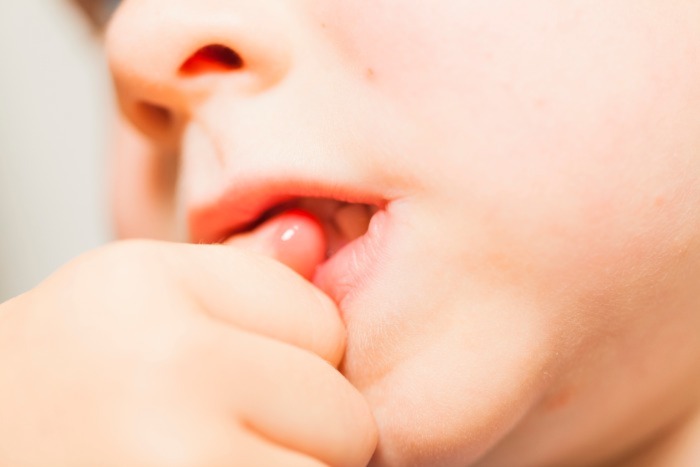
Bad Dental Habits that Are Harmful to Your Teeth
A habit is a settled or regular tendency or practice, especially one that is difficult to give up. Old habits are not easy to break and new habits are challenging to form because our behavior patterns become imprinted in our neural connections. While many of us have good dental habits, it is important to continually review them as well as think about some of the routines that we should try to avoid to have optimal oral health. We review some of the bad habits you should avoid and how you can break them if they have become the norm for you.
Chewing On Ice
When you drink a refreshing beverage that is cold and full of ice, it is often tempting to chew on the remaining ice cubes afterward. Chewing of ice cubes may seem innocuous and help prevent waste. Ice itself is water, so why would it be bad for our health? Water itself is not harmful, however, ice can be rather detrimental to your teeth when chewed. Every bite into a piece of ice risks the formation of cracks and chips in your tooth enamel. The result could even be rather painful and result in an emergency call to the dentist.
If you enjoy a very cold beverage, consider chilling the beverage prior to consuming it, so that you do not require ice in your drink. Another option if you must have ice is to drink through a straw to avoid the temptation to chew on the ice. These modifications could help save you an unnecessary trip to the dentist.
Biting Your Nails
Biting your nails is a habit to avoid for a number of reasons. Physicians often urge against nail biting because it introduces a number of bacteria and germs into your mouth. Nail biting can have negative effects on your dental health as well. To begin with, nail biting has the potential to break your teeth. Habitual nail biting can result in your teeth shifting, as you typically put stress on the same teeth repeatedly. The result might alter the position of your teeth, thus changing the way your smile appears. Biting your nails can also have a significant effect on your jaw.
A professional manicure will keep your nails looking nice and is something to consider if you have a habit of biting your nails. In addition, there are a number of nail polishes on the market that deter the user from putting their fingers in their mouth. You can also purchase a nail care kit that will encourage you to take care of your nails with instruments rather than your teeth. Lastly, encourage those close to you to point out when you are biting your nails. It may seem like a inconsequential act now, however, it can have a very negative impact on your teeth if it continues long-term. Consider these suggestions now in order to prevent negative effects down the road.

Forgetting to Floss
Flossing is a key component of any successful oral hygiene regiment. Unfortunately, a lot of people don’t floss frequently enough, don’t floss at all, or use the incorrect type of floss. It is important to floss once a day, and use the right type of floss specifically for your teeth. Flossing plays a critical role in keeping your teeth and gums in good health. Without flossing regularly and properly, plaque can form on your teeth, resulting in damage to your enamel. Therefore, make sure that flossing, rather than not flossing, is the habit that you pursue.
Opening Things With Your Teeth
As easy as it may be to do, teeth should not be used as instruments for opening things. Using your teeth to open or carry something can lead to cracks, chips, and damage to the jaw. It may be tempting to use your teeth as a tool, but it isn’t worth the risk. Take an extra minute to find scissors, a bottle opener, or a pair of strong hands. Your teeth were meant to chew food. If it isn’t edible, don’t pry on it with your teeth.
Eating and Drinking too Many Sweets
Snacking on too many sugary sweets greatly increases the risk of cavities. When eating foods that are high in sugar, the molecules combine with saliva and bacteria present in the mouth. This often leads to plaque on the teeth, which can dissolve enamel and lead to cavities. In addition, hard candies can often lead to chipped or broken teeth, as it is tempting to bite them. Try to limit sweet treats to a reward or for a special occasion to avoid dental issues and be sure to brush your teeth as soon as possible after eating foods high in sugar.
Not Having an Oral Hygiene Regiment
The importance of a thorough and regular health regiment cannot be overstated. At a minimum, you should brush twice a day for two minutes to remove plaque that has built up throughout the day on your teeth. You should also make sure to floss daily. Sticking to a good oral health regiment will prevent a wide variety of dental problems.
Teeth Grinding or Clenching
People often begin to clench or grind their teeth due to stress. More often than not, the person may not notice they have this habit. Grinding of teeth can create chips or cracks in your teeth as well as damage your jaw. They will also wear your teeth down over time.
Fortunately, if you grind your teeth there are options to correct the behavior or mitigate damage. One option is to look for ways to handle stress such as meditation, counseling, or exercise such as yoga. Reducing the amount of caffeine that you consume can also result in benefits. If you grind your teeth at night, a mouth guard will prevent you from long-term damage that could otherwise occur.

Brushing Incorrectly or Infrequently
Many people don’t brush often enough, some brush too hard, and some don’t brush their teeth at all. Brushing your teeth is an important dental care habit and is necessary for maintaining good dental health. However, brushing incorrectly can do more harm than good. Brushing too hard will wear down your tooth enamel, making your teeth more susceptible to damage, sensitivity, and decay. Brushing too hard may also irritate your gums and cause them to recede and become more sensitive.
We recommend brushing your teeth with a soft-bristled toothbrush. Look for a toothbrush with an ADA label, which indicates that the bristles are soft enough to avoid damage and firm enough to properly clean your teeth. When you brush your teeth, don’t scrub hard, rather, massage them with the toothbrush.
